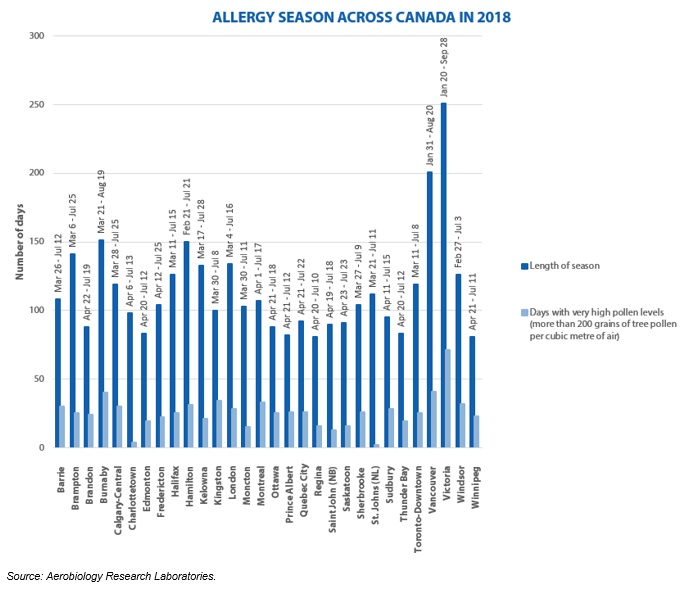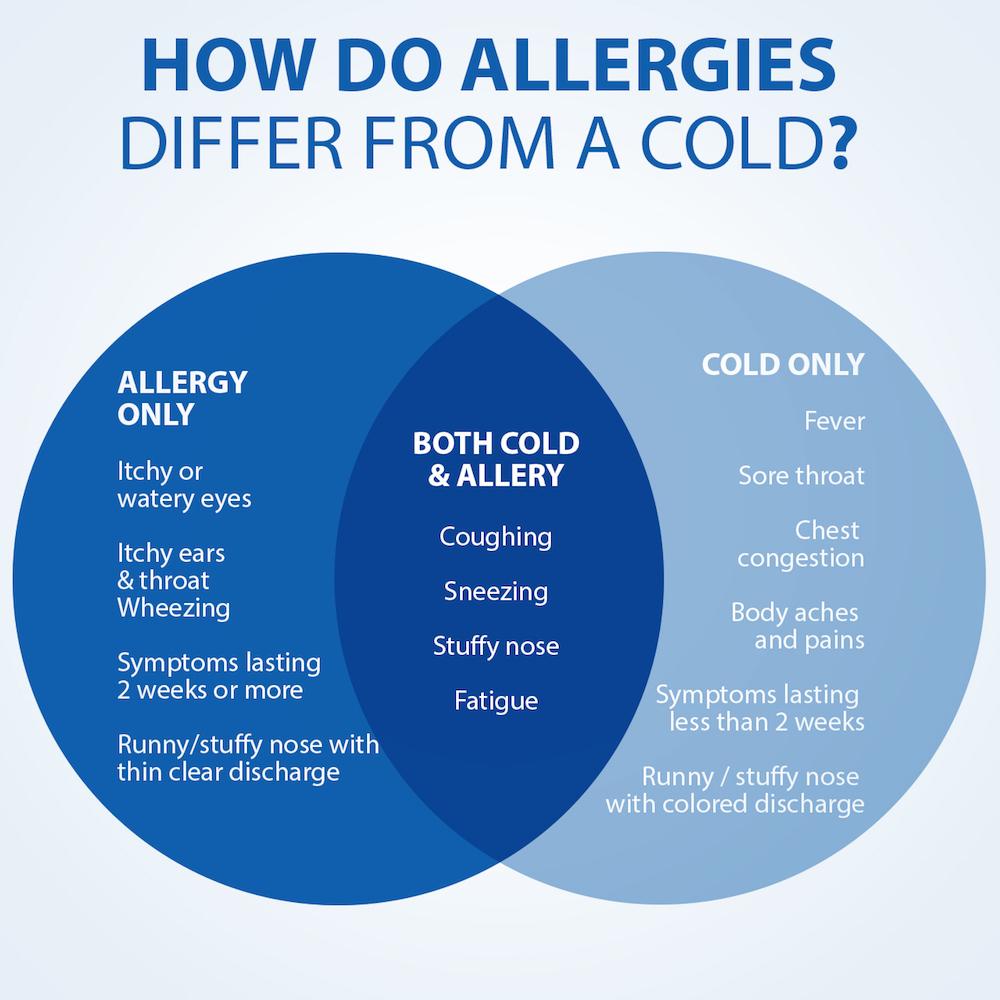Allergy sufferers should start taking medications now to stay one step ahead of symptoms
Experts at Aerobiology Research Laboratories who specialize in pollen and spore identification and research in Canada say there has been a late start to allergy season, but that it has arrived in British Columbia with the rest of Canada not far behind.
The aeroallergen monitoring firm collects pollen samples daily at collection sites across Canada and looks at when pollens are present in the air in each city, assessing the average pollen season length and the number of very high pollen days.
Last year, the average allergy season length across Canada was 115 days, with Victoria, Vancouver, Burnaby, Hamilton, and Brampton experiencing the longest seasons.
Tree pollen allergy season start and end dates across Canada last year with number of very high pollen days in each city. Pharmacists recommend that allergy sufferers should start taking their medication about two weeks prior to the start of allergy season as some medications can take a few weeks to become fully effective.
For allergy suffers, the arrival of pollen in the air underlines the importance of taking allergy medications proactively, says London Drugs Pharmacist Craig Forster, in this CTV News story.
Some medications can take a few weeks to become fully effective, so ideally, allergy sufferers should start taking their medication two weeks prior to the start of allergy season to stay one step ahead of symptoms.
A new survey conducted by Insights West on behalf of London Drugs found that four in 10 (40%) Canadians don’t start taking their allergy medications early enough. This includes three in 10 (29%) who say they only take allergy medication when they start to feel symptoms and one in 10 (11%) who take them only when they notice symptoms are not going away. Just seven per cent take them either right at the start of allergy season or two weeks beforehand.
Is it Allergies or Is It a Cold?
One underlining issue is that some people mistake early allergy season symptoms with a cold. The similarities between cold symptoms and allergy symptoms can make it difficult to tell which condition to treat.
The survey underscores Canadians’ confusion, as 65 per cent mistake allergy symptoms for a cold. Most respondents identified the symptoms of a cold as coughing (88%), sneezing (83%), sore throat (83%), runny/stuffy nose (79%), and chest congestion (70%).
When thinking of allergies, most respondents associate them with itchy or watery eyes (93%), sneezing (90%), and a runny/stuffy nose (78%). Fewer than half recognize the other symptoms shown as a sign of allergies, such as itchy ears and throat, wheezing, and long-lasting symptoms.
Although allergies and the common cold share many symptoms, patients experiencing seasonal allergies generally suffer from itchy watery eyes and a runny nose. Symptoms of a cold may include aches and pains, a sore throat, and perhaps a fever and chills, which are not typical of seasonal allergies. A cold will generally only last about a week or two, whereas seasonal allergies will have longer-lasting symptoms.
For allergies, treatments may include antihistamines, decongestants, sinus rinses, nasal sprays, or eye drops.
Pharmacists at London Drugs can help distinguish your symptoms and recommend the right course of treatment based on the severity, your past response to medications, and any other medical conditions.
Visit your local London Drugs and speak with a pharmacist to learn more.




